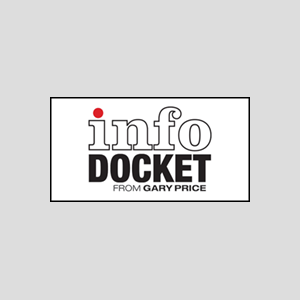MORE 'SCHOLARLY-PUBLISHING' POSTS
Inside Higher Ed Intellectual Affairs columnist, Scott McLemee, reviews Ian Maclean’s, Scholarship, Commerce, Religion: The Learned Book in the Age of Confessions, 1560-1630 (Harvard University Press). From the Review: By the 1590s, a satirist was complaining about the flood of shoddy material: Publishers were more interested in best-sellers than in serious scholarship. Volumes went to […]
Congratulations to Kent Anderson and the new board members. From an e-Letter to SSP Members: President-Elect: Kent Anderson, Journal of Bone & Joint Surgery Board Members at Large: Ann Michael, Delta Think Heather Staines, Springer Science & Business Media, Inc David Smith, CABI Each of these individuals will take office at the close of the […]
From a Letter by the Harvard Faculty Advisory Council to All Harvard Faculty Members (via Harvard U. Library Transition Web Site) We write to communicate an untenable situation facing the Harvard Library. Many large journal publishers have made the scholarly communication environment fiscally unsustainable and academically restrictive. This situation is exacerbated by efforts of certain […]
From a News Release: Nature Publishing Group (NPG) is pleased to announce mobile-optimization for a number of its journals on nature.com. Nature, Nature Climate Change, Nature Communications and Scientific Reports now offer complete mobile-optimized versions of their websites, designed for use in web browsers on “small screen” devices like smartphones and tablets. All other Nature […]
Interview: A Conversation with Stanford’s Highwire Press
| Companies (Publishers/Vendors), Data Files, Interviews, Open Access, Profiles, Publishing
From The Chronicle of Higher Education: In this interview, I speak [Professor Adeline Koh conducts the interview] with the Stanford HighWire Press, which functions as one of the new “printing presses” for scholarly work. Established in 1995, Highwire offers hosting space and a publishing platform for publishers and scholarly societies. HighWire provides the publishing platform […]
The Economist On Open Access and Scholarly Publishing
| Academic Libraries, Companies (Publishers/Vendors), Elsevier, Journal Articles, Libraries, Open Access, Publishing
From The Economist Article, “Open Sesame”: Publishing obscure academic journals is that rare thing in the media industry: a licence to print money. An annual subscription to Tetrahedron, a chemistry journal, will cost your university library $20,269; a year of the Journal of Mathematical Sciences will set you back $20,100. In 2011 Elsevier, the biggest […]
From AIP: Two new open-access journals will join the distinguished ranks of publications produced by the (AIP) later this year. The journals – JAP Materials and APL Materials – will be affiliated with AIP’s two premier applied physics journals, Journal of Applied Physics (JAP) and Applied Physics Letters (APL), and will feature research on materials, […]
From the UNESCO Web Site: Addressing a major concern of Member States, UNESCO has released a new publication entitled Policy Guidelines for the Development and Promotion of Open Access to demystify the concept of Open Access and provide concrete steps on putting relevant policies in place. [Clip] Besides strengthening capacities to adopt Open Access (OA) […]
Note: We’ve updated this post (at the bottom) with a link to a recent keynote lecture (video) by Anthony Grafton. It’s titled, “The Transforming Book”. From an WSJ “Ideas” Blog Post: Anthony Grafton, a professor of history at Princeton and past president of the American Historical Association, is distressed when he contemplates the changes afoot […]
Paper — The Metadata Coverage Index (MCI): A Standardized Metric for Quantifying Database Annotation Richness
| Data Files, Journal Articles, Open Access, Patrons and Users, Resources
The Metadata Coverage Index (MCI): A Standardized Metric for Quantifying Database Annotation Richness Variability in the extent of the descriptions of data (metadata) held in public repositories forces users to assess the quality of records individually, which rapidly becomes impractical. The automatic scoring of records on the richness of their description enables sorting by quality. […]






